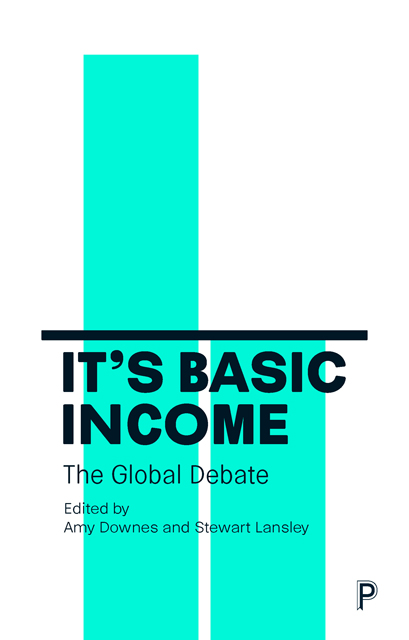30 - Making universal basic income work: the incremental approach
Published online by Cambridge University Press: 11 April 2023
Summary
‘“Starting small” through an incremental approach has many benefits. Such an approach is grounded in reality. By building on the existing system, it offers an incremental, phased approach to reform, … [and] reduces the risks of reform, while offering flexibility for gradual improvements over time.’
Now that there is growing momentum behind the idea of a UBI, the debate is turning to implementation and to the practical questions of how to make UBI a reality. Two of the big issues are whether it is affordable and whether it could deliver a more progressive system of social protection that reduces poverty. Some critics say it would fail these two tests: as Emran Mian in the Independent has put it, ‘the utopia it promises is a deceit’. An affordable UBI, it is claimed, would not pay enough to be worth the bother of change, while one which paid a decent rate would be much too expensive. To find out if ‘deceit’ is at work, we have modelled two different approaches to implementation for the progressive pressure group Compass. The first tested a ‘full UBI scheme’, one which replaces most, though not all, benefits including most means-tested benefits. The second tested a ‘modified scheme’, one which leaves most of the existing system, including means-tested benefits, in place. This second approach can be seen as a first step towards the gradual implementation of a fuller scheme.
Both approaches have been evaluated according to the net cost, the number and pattern of gainers and losers and the impact on poverty and on inequality. These simulations show that a full and generous scheme, one that swept away most of the existing system of income support in one go – a ‘big bang’ approach – would be either too expensive, or create too many losers among lower income households, thus raising poverty levels. This is because the current benefits system, partly due to its reliance on means testing, is able to deliver large sums to some groups. These problems suggest that a full scheme structured in these ways is not feasible in the current circumstances.
An incremental approach
However, the study also found that a ‘modified’ scheme, one that still provided a universal and unconditional income, albeit at a moderate starting level, and that initially left much of the existing system intact, would be feasible.
- Type
- Chapter
- Information
- It's Basic IncomeThe Global Debate, pp. 159 - 163Publisher: Bristol University PressPrint publication year: 2018



